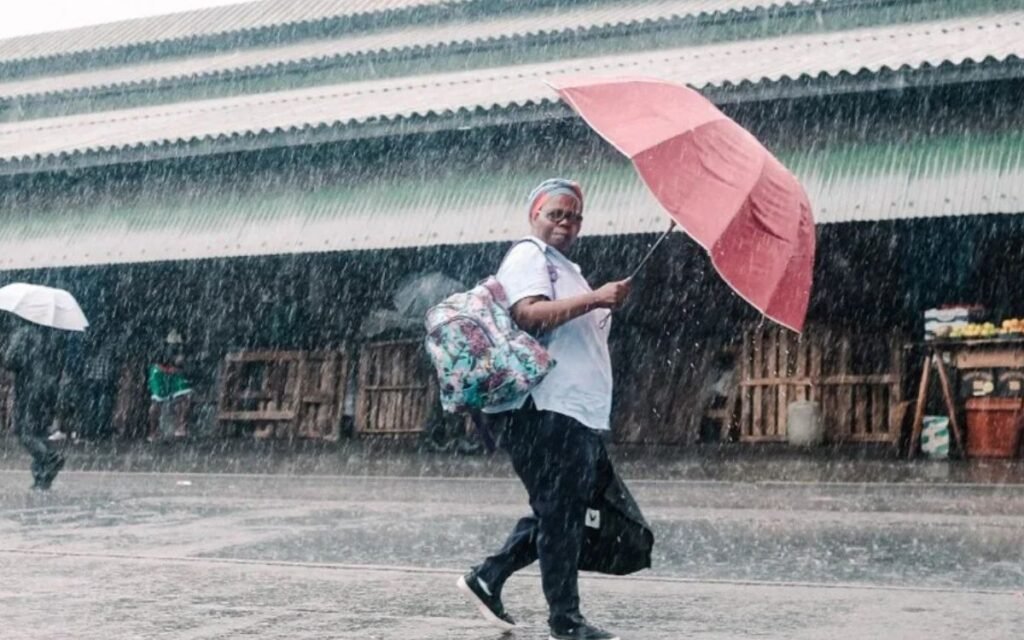Devastating rains that have caused deadly floods in Cameroon, Chad, Niger, Nigeria and Sudan over the past months were strengthened by human-induced climate change, according to an international team of scientists on Wednesday.
Global warming made the seasonal downpours this year 5-20% more powerful across the Niger and Lake Chad basins, said World Weather Attribution (WWA), a group of scientists investigating the influence of climate change on extreme weather.
It also said that such intense rainfall may occur every year in case of warming.
“Spells of heavy summer rainfall have become the new normal in Sudan, Nigeria, Niger, Cameroon and Chad,” said Izidine Pinto, Researcher at the Royal Netherlands Meteorological Institute, in a WWA statement.
According to the U.N. aid agency OCHA, these floods have killed around 1,500 and displaced more than 1 million so far in West and Central Africa. It has overwhelmed dams in Nigeria and Sudan.
If global warming reaches 2 degrees Celsius or 3.6 degrees Fahrenheit-this may happen as early as the 2050s-these torrential rains are expected to occur almost every year in the vulnerable regions, WWA said, calling for more investments in early warnings and enhancement of dams.
“Africa has emitted a minute fraction of global carbon emissions but bears the brunt of extreme weather,” said Joyce Kimutai, a researcher at the Centre for Environmental Policy at Imperial College in London.
She said that it was incumbent on COP29 climate talks scheduled for this year in November to ensure rich nations came good with “meaningful finance” to help.
The Climate Change Connection:
Climate change is a role that could hardly be ignored in the frustratingly flooding crisis of Africa. To start with, although floods have always been a natural part of weather phenomena on this continent, recent years have noted an increase in intensity and unpredictability.
According to scientists, the change is attributed to global warming as shifts in monsoonal and tropical rainfall patterns have become prevailing in the region.
Climate change scientists argue that global warming has intensified the likelihood of extreme rainfall in flood-prone African regions by 40-70%.
In the words of the IPCC, unless urgent measures to keep global rise in temperature below 1.5°C, these events will continue to be felt and witnessed to become more recurrent and intense in the years ahead.

International support and climate funding will also be vital to support African countries in efforts to deal with these challenges.
The rich countries, who contributed to most of the carbon emission that has been accumulated to trigger climate change, should also finance efforts by African countries to adapt to new realities. It can be provided through green infrastructure, technical assistance, and relief aid for communities affected by extreme climatic conditions.
The Road Ahead:
The African floods bring home an urgent need for addressing climate change at a global level. International cooperation as well as immediate action to protect the already vulnerable populations of African countries are needed more than ever.
These investments in infrastructure, improvement in disaster management, and climate-resilient agriculture are considered as some of the key interventions which help to cut down the toll of extreme weather on African countries.
The global community needs to increase efforts at reducing carbon emissions and limiting the rate of global warming.
The consequences of not taking necessary actions become even more evident. As Africa is struggling to fight more virulent rainfalls and disastrous flooding, the world needs to take ownership of the responsibility for its future and that of successive generations.
All in all, therefore, the heavy rains fall in Africa’s flooded regions directly as a result of global warming. Unless urgent and coordinated action comes, Africa will continue to face both the changes in climate and socio-economic implications that will degrade with time. Climate resilience and cooperation globally will be necessary for securing Africa’s future in an ever-changing climate.

